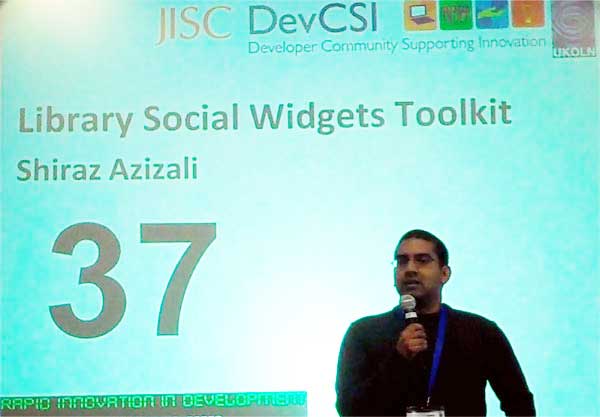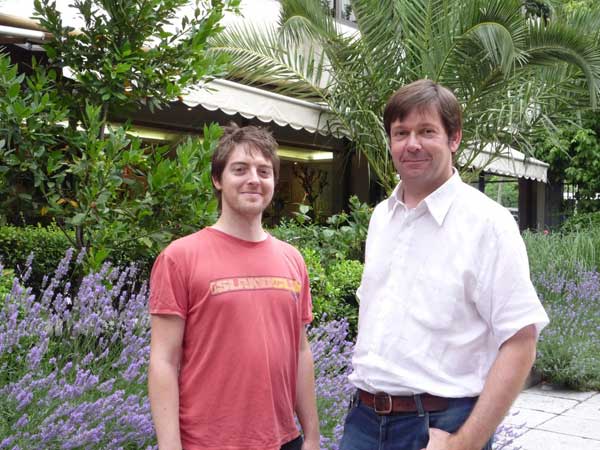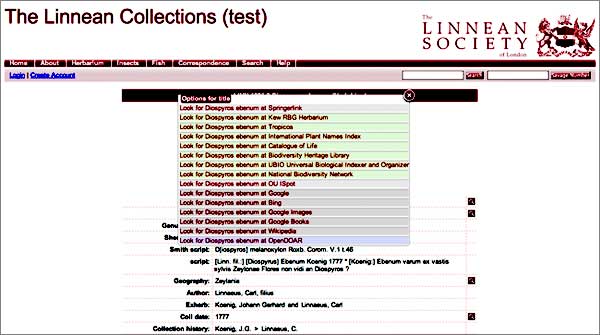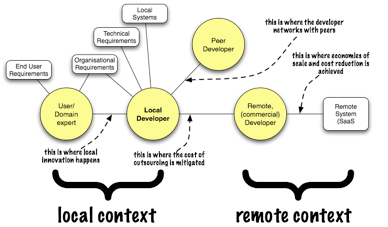Why UK Further and Higher Education Needs Local Software Developers
Software developers are important to Further (FE) and Higher Education (HE). They are needed to develop and implement local FEI (Further Education Institution) and HEI (Higher Education Institution) solutions, to build e-infrastructure, and to innovate and develop ideas and prototypes that can be exploited by others. They also play an important part in the development and uptake of open standards and interoperability.
With the increasing accessibility and affordability of high-quality development tools, collaborative environments and industrial-grade infrastructure, the potential for even a single software developer advantageously to affect a wide range of activities in and around research, teaching and learning has never been so great. Yet, within Further and Higher Education, developers are rarely recognised as individually valuable, or exploited as a strategic resource. Typically, a problem is identified and a certain amount of 'developer resource' is allocated to solving it. This tends to mean that developers actually become engaged in a continuous loop of problem solving; even when they have a larger perspective to offer, they find themselves locked into relatively straightforward, functional roles.
Developing an FE and HE Developer Community
An important issue is the sometimes relative isolation of the developer in FE and HE. While developers are often advanced in their use of distributed networks of peers, naturally exploiting an array of technologies to support this, these networks are often founded on a common interest or endeavour in a particular technology, product, or technical project, but whose proponents are widely distributed geographically. Much software development in FE and HE is carried out at individual institutions and there has tended to be a limited number of channels for developers to meet, share ideas and experience and collaborate on solving problems even if they are working in similar areas. While this type of development is valuable, there has been a lack of any strong sense of community among developers working in the FE and HE sector. Moreover, just as these developers' input into the sector has been insufficiently recognised, so has their wider interest in, and loyalty to, this sector been underestimated. We believe that encouraging the development of such a community is a route to giving developers more of a 'voice' in Further and Higher Education. It was in response to these issues that the DevCSI Project [1] was born, a project funded by JISC [2] and based at UKOLN [4].

Figure 1: The DevCSI home page banner.
Project Aims
The project has been running since August 2009 and has primarily been concerned with building capacity for software developers professionally and for innovation in UK Further and Higher Education. The primary foci of the work in the first year centred largely on two parallel activities:
- Supporting and developing the individual developer (e.g. through training events and showcasing individual / group work)
- Developing a community capable of responding to challenges in more innovative and effective ways (e.g. creating and maintaining a Developer Focus Group, a mailing list for developers and enabling network opportunities, etc.)
The project initially concentrated on generating energy, interest and engagement amongst developers in Further and Higher Education so that they could begin to feel they were part of a supportive community that met some of their own staff development and support needs. The project reached over 1000 people face-to-face in the first year through directly organised or supported innovative events, such as the JISC Developer Days / Dev8D 2010 [4] which involved some professional development as well as the opportunity to work on innovative challenges [5]. Feedback from these events has generally been extremely encouraging:
"They gained a huge amount. They came back very enthusiastic and full of good ideas. It did a great deal for morale and motivation…. It's a very powerful thing when your peers say that you are doing something the best,"
"...decided to use the momentum of Dev8D to move forward with agile working and the List8D project by providing the development team with two very important assets: physical and mental space."
Some preliminary analysis reveals that these events can represent an extremely cost-effective means of providing high-quality professional development as they largely entail peer-to-peer training, as compared, for example, to commercial courses. An example of the kind of training event where developers have empowered their own staff development was the Rapid Innovation in Development Media Training workshop, DevCSI's first event in September 2009 [6]. All developers, warned beforehand, were asked to pitch their project in 45 seconds to their peers and in front of video cameras. Afterwards, and something of which they were not forewarned, developers were told they would have to pitch again the next day, but would only have 20 seconds. This came as a bit of a surprise. In the meantime they were given expert feedback and coaching from media and technical experts on their videoed pitch in a 'Dragon's Den' style (based on the popular BBC television series [7]). Developers were also interviewed by professional journalists giving them another opportunity to practise their pitch before they would have to do their own 20-second pitch. The improvements were remarkable in many cases, some even good enough to be subsequently used for marketing purposes. The event was very innovative, intense and took many developers out of their comfort zone.

Figure 2: Shiraz Azizali won the 'most improved' pitch award.
Work from the Rapid Innovation in Development event is available on the DevCSI Showcase blog as well as other examples showcasing developers' work [8]. (If you know of some great work by software developers in the UK Further and Higher Education sector, please let us know.)
The project also has formed a Developer Focus Group 'which is made up of experienced developers who help inform the project's strategy and provide advice to other developers in the sector'. They have created an active and open mailing list, called Developer Contact, where they share ideas, discuss problems, etc [9], examples include, 'How do I get started on Oracle Berkeley DB', 'Can anyone recommend a python library for working with RDF?' or 'Suggestions for a real-time data store, to be used for tracking state in a distributed control environment'. Anyone identifying him- or herself as a developer, or who is interested in software development, is free to join up.
Furthermore, a 'Developer Challenge' [10] was organised, the first international challenge to get users, domain experts and developers collaborating successfully, 'bringing remote services to bear in a local context', with a specific focus on digital repositories.

Figure 3: Rory McNicholl and Richard Davis, both from the University of London Computer Centre,
winners of the Developer Challenge at Open Repositories 2010 (Madrid).
What judges particularly liked about Rory and Richard's entry was how it directly provided evidence of one of the underlying beliefs of the DevCSI Project. It was a fantastic example of how a local developer, working with a local user, brought remote services to bear in a local context they understand (they added links generated dynamically to a Repository Abstract page by mapping embedded RDFa metadata to an external list of selected services in a Google docs spreadsheet).

Figure 4: ULCC Developer Challenge Entry at OR10. EPrints Abstract page with added links generated dynamically
by mapping embedded RDFa metadata to an external list of selected services.
DevCSI has been successful in attracting funding for a further year and the main emphasis in year 2 of the project is to consolidate and build on the work that has taken place so far. However, in addition it will concentrate on: obtaining evidence as to the value of a community for software developers in Further and Higher Education; ensuring that growth in the community is sustainable; and that ensuring institutions can demonstrate the significant advantage of having local developers.
The DevCSI Project will continue to bring developers and users/domain experts together to try and innovate in a number of domains and will focus on supporting the sector's capacity to practise 'disruptive innovation' in a local context [11][12].
How FEIs and HEIs Can Contribute
We believe that:
- FEIs and HEIs need to create and/or maintain organisational 'space' within which 'disruptive innovation' can occur
- FEIs and HEIs need to invest in local software development capacity, which is convenient, affordable and, crucially, allows them to apply local context-specific knowledge and requirements to the development of solutions which will, inevitably, carry an element of outsourced, remote provision.
The capacity for technical innovation is a strategic resource which needs investment in the institution and in the sector. Technical innovation can itself be regarded as an investment. A current trend in FEIs and HEIs towards the outsourcing of technical services is understandable from the point of view of the pressing need to find cost-saving efficiencies. However, maintaining a local capacity to innovate, possibly through exploiting remote services in a local context, is crucial. The local software developer can mediate between local users/domain experts and remote services, having a better understanding of local business processes and context.
FEIs and HEIs that innovate to meet the challenges of the economic recession will increase their chances of survival in the short term, and will flourish in the long term.
Bringing Developers, Users and Software as a Service (SaaS) Together

Figure 5: The role of local developers in mediating local and remote contexts.
Characteristics of the FE and HE Developer
We hope to test and gather evidence for some of the tentative assumptions we have made in the project about software developers in Further and Higher Education , namely that they:
- understand the local context of their institutions better than externally procured services (in some contexts) and can act as a bridge between remote service providers and local end-users
- can take the remote service which is helping the FEI and HEI to realise economies of scale and add value by integrating it into the local context/systems
- can benefit greatly from being 'networked' in a loose community of overlapping, domain-specific interests and endeavours
- can work together and closely with end-users and can deliver innovation which can then be shared to the benefit of the sector as a whole, demonstrating the value of how innovation sometimes happens in a local context
- benefit end-users in FEIs and HEIs in terms of their understanding and developing expectations as well as providing a better appreciation of what is technically possible by working closely with developers, even in an occasional, incidental way
- can offer extremely cost-effective training to their peer community, especially through ad hoc training events
DevCSI will also explore: whether FEIs and HEIs offer developers a suitable career path (especially when compared to the commercial sector) and; whether the promotion of successful developers leads to their taking roles which may not maximise their skills fully, or whether they have taken on roles that appear unsuitable. We will also examine what the impact is of the resulting loss of invaluable tacit knowledge of the local context when developers leave. We hope to do this by commissioning a number of case studies and are very keen to hear from you if you feel your institution might be able to provide a suitable story. Currently we are conducting a UK-wide stakeholder analysis, if you would like to participate and tell us your stories, please read more about it on the DevCSI blog [13]
Conclusion
We have a number of events organised this year (please see our blog [5] or calendar of events [14]). However, we really want to hear from you if you have a good idea for an event, workshop or meeting; especially if it involves developers from different domains sharing experiences, giving advice as well as working together with users on innovative challenges.
References
- Developer Community Supporting Innovation Web site http://devcsi.ukoln.ac.uk
- JISC http://www.jisc.ac.uk/
- UKOLN http://www.ukoln.ac.uk/
- JISC Developer Days http://dev8d.org/
- DevCSI Blog http://devcsi.ukoln.ac.uk/blog/
- Rapid Innovation in Development http://www.ukoln.ac.uk/events/jiscri-2009/
- BBC TV – Dragon's Den – About the Show, http://www.bbc.co.uk/dragonsden/about
- DevCSI Demonstrator http://devcsi.ukoln.ac.uk/demonstrator/
- Developer Contact http://groups.google.com/group/developer-contact?pli=1
- Open Repositories Developer Challenge http://devcsi.ukoln.ac.uk/or10dev/
- Scott Anthony, Can Established Companies Disrupt? Harvard Business Review, blog entry, 4:40 PM Wednesday December 10, 2008
http://blogs.hbr.org/anthony/2008/12/can_established_companies_disr.html - Clayton Christensen, The Innovator's Dilemma
http://www.businessweek.com/chapter/christensen.htm - DevCSI Stakeholder Analysis, DevCSI Blog, 18 November 2010
http://devcsi.ukoln.ac.uk/blog/2010/11/18/devcsi-stakeholder-analysis-%E2%80%93-tell-us-your-stories/ - DevCSI Calendar http://devcsi.ukoln.ac.uk/calendar.html
